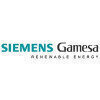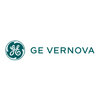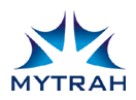Filter interviews by
Inox Wind Interview Questions, Process, and Tips
Inox Wind Interview Experiences
37 interviews found
I applied via Referral and was interviewed in Nov 2020. There were 3 interview rounds.
Interview Questionnaire
1 Question
- Q1. Current jd
Interview Preparation Tips
Engineer Interview Questions asked at other Companies
I applied via Referral and was interviewed in May 2020. There was 1 interview round.
Interview Questionnaire
2 Questions
- Q1. Explain all activities at site with following safety ruls
- Ans.
Activities at site with safety rules
Conducting regular safety inspections
Providing personal protective equipment (PPE) to workers
Ensuring proper training of workers on safety procedures
Maintaining proper signage and warnings
Implementing emergency response plans
Enforcing strict adherence to safety rules and regulations
Regularly reviewing and updating safety policies and procedures
- Q2. Handling off crains at site explain it
- Ans.
Handling off cranes at site involves proper planning, coordination and safety measures.
Ensure proper communication between crane operator and ground personnel
Inspect crane and rigging equipment before use
Ensure proper weight distribution and load capacity
Use proper hand signals and follow safety protocols
Train personnel on proper crane operation and safety measures
Examples: lifting heavy equipment, materials, or struct
Interview Preparation Tips
Because every work is possible
Mechanical Engineer Interview Questions asked at other Companies
Interview Questionnaire
2 Questions
- Q1. Relocate to any location in India
- Q2. Basic techanical question and prefer experience of wind sector
Interview Preparation Tips
Engineer Interview Questions asked at other Companies
I applied via Walk-in and was interviewed before Sep 2019. There was 1 interview round.
Interview Questionnaire
1 Question
- Q1. How does wind turbine generated power
- Ans.
Wind turbines generate power through the conversion of wind energy into electrical energy.
Wind turbines have large blades that capture the kinetic energy of the wind.
The wind turns the blades, which are connected to a rotor.
The rotor spins a generator, which produces electricity.
The electricity generated is then transmitted through power lines for use.
Wind turbines can generate power even at low wind speeds, but their
Interview Preparation Tips
Junior its Engineer Interview Questions asked at other Companies
Inox Wind interview questions for popular designations
Interview Questionnaire
1 Question
- Q1. 1.what is torque.?2-how to gear box work.?3-what is the reason of torque limiter failure?4-what is the reason of coupling failure?5-in which bearing used yawing system?6-what is accumlator and how its work...
- Ans.
Questions related to torque, gearbox, torque limiter and coupling failure, yawing system bearing, and accumulator.
Torque is a measure of rotational force.
Gearbox works by transmitting power from the engine to the wheels.
Torque limiter failure can be caused by overloading or overheating.
Coupling failure can be caused by misalignment or excessive torque.
Yawing system bearing is a type of roller bearing used to support th...
Junior Engineer Interview Questions asked at other Companies
Get interview-ready with Top Inox Wind Interview Questions
Interview Questionnaire
2 Questions
- Q1. Tell about yourself, about your previous work experience, technical details of wtg, about the cranes used in project.
- Q2. What is difference between tensioning and torquing ?
- Ans.
Tensioning is the process of applying tension to a fastener or material, while torquing is the process of applying torque or rotational force.
Tensioning involves stretching or pulling a material to create tension, while torquing involves applying rotational force to tighten or loosen a fastener.
Tensioning is commonly used in applications such as tightening cables, belts, or chains, while torquing is used in fastening b...
Interview Preparation Tips
Experience: On my experience in wind sector.
Project Engineer Interview Questions asked at other Companies
Jobs at Inox Wind
I applied via Company Website and was interviewed before Dec 2019. There were 3 interview rounds.
Interview Questionnaire
4 Questions
- Q1. Self introduction
- Q2. Job Profile
- Q3. Family Members
- Q4. Training
Interview Preparation Tips
Commercial Executive Interview Questions asked at other Companies
Top trending discussions






Inox Wind Interview FAQs
The duration of Inox Wind interview process can vary, but typically it takes about less than 2 weeks to complete.
Recently Viewed
Tell us how to improve this page.
Inox Wind Interviews By Designations
- Inox Wind Engineer Interview Questions
- Inox Wind Assistant Manager Interview Questions
- Inox Wind Service Engineer Interview Questions
- Inox Wind Senior Electrical Engineer Interview Questions
- Inox Wind Junior Engineer Interview Questions
- Inox Wind Junior its Engineer Interview Questions
- Inox Wind Electrical Engineer Interview Questions
- Inox Wind Project Engineer Interview Questions
- Show more
Interview Questions for Popular Designations
- Engineer Interview Questions
- Service Engineer Interview Questions
- Assistant Manager Interview Questions
- Senior Executive Interview Questions
- Sales Executive Interview Questions
- Graduate Engineer Trainee (Get) Interview Questions
- Java Developer Interview Questions
- Test Engineer Interview Questions
- Show more
Inox Wind Interview Process
based on 28 interviews
Interview experience
Interview Questions from Similar Companies
Inox Wind Reviews and Ratings
based on 482 reviews
Rating in categories
18-20 Yrs
Not Disclosed
|
Electrical Engineer
122
salaries
| ₹0 L/yr - ₹0 L/yr |
|
Engineer
92
salaries
| ₹0 L/yr - ₹0 L/yr |
|
Assistant Manager
65
salaries
| ₹0 L/yr - ₹0 L/yr |
|
Junior Engineer
64
salaries
| ₹0 L/yr - ₹0 L/yr |
|
Senior Engineer
61
salaries
| ₹0 L/yr - ₹0 L/yr |

Suzlon Group

Siemens Gamesa Renewable Power Private Limited

Vestas

GE Vernova
- Home >
- Interviews >
- Inox Wind Interview Questions














